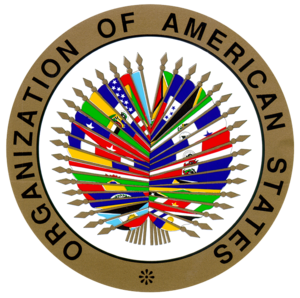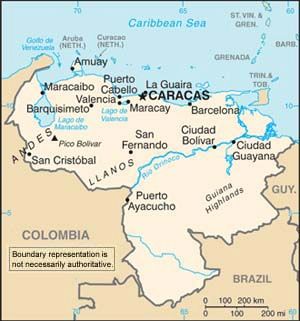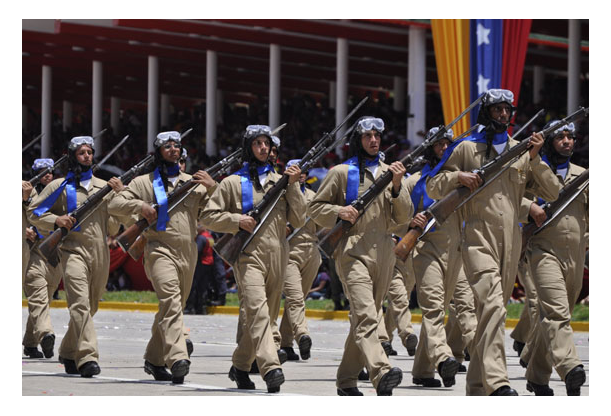In 2017, Michael Shifter reported that “Just a decade ago, Venezuela was perhaps the most influential Latin American country in the Organization of American States (OAS), the world’s oldest regional cooperation group…On April 26, after a majority of OAS states called a special meeting to discuss Venezuela’s crisis, Caracas declared that it would leave the organization.”
A glance at key provisions within the recently released report by the Organization for American States outlines the crisis:
“The decision to produce this report stems from the marked deterioration in the country with respect to the exercise of human rights, and the grave political, economic, and social crisis in Venezuela…the Inter-American Commission addresses the human rights situation in Venezuela by analyzing the impact on them of the dismantling of much of democratic institutional system and the alarming increase in repression, violence, and citizen insecurity…For several years now, the [Inter-American Commission on Human Rights] IACHR has been observing a gradual deterioration in the democratic institutional system and the human rights situation in Venezuela that has become significantly more intense and widespread since 2015. …This breach of the principle of the separation of powers is most seriously manifested in the alarming behavior of the Judiciary, especially in the past two years. Indeed, the exacerbation of the recent crisis in Venezuela is closely linked to a series of decisions taken by the Supreme Court of Justice (TSJ) that amounted to interference with the National Assembly (AN) and violated the principle of the separation of powers.
“This situation worsened in 2017 to a point at which Judgments No. 155 and 156 handed down by the TSJ on March 28 and 29, respectively, produced an alteration of the constitutional order. In those judgments, the TSJ did away with the parliamentary immunity of deputies to the AN, established that their acts constituted “treason”, granted the Executive broad discretionary authority, and arrogated to itself powers rightfully pertaining to the Legislature. As the IACHR pointed out at the time, those measures represented usurpation by the Judiciary and the Executive of powers constitutionally granted to parliament, as well as a de facto annulment of the popular vote, via which those deputies had been elected. The alteration of the constitutional order in Venezuela was possible due to a series of factors that mean that, in general, the country’s democratic institutional system is seriously flawed. … there are still serious instances of interference with the Legislature and obstacles to the exercise of its constitutional function…the Commission calls upon the State to adopt immediate and resolute measures to restore the constitutional order, and guarantee the separation of powers and appropriate exercise of the constitutionally established functions of the AN, including the lifting of the measures referred to above…
“The interferences of the Judiciary and the Executive in the Legislature have been accompanied by a lack of independence and inadequate exercise of the functions of constitutional bodies that are vital for democracy, such as the National Electoral Council (CNE), the Public Prosecutors’ Office (Ministerio Público -MP), and the Ombudsperson’s Office (Defensoría del Pueblo – DP). That being so, the Commission considers it essential to take decisive steps to ensure that these bodies function without interference or improper political pressures and comply fully with their constitutional mandate, which is vital for the democratic rule of law in Venezuela.
We know very well that if the man is a malnutrition guy or a person who is of some age viagra pfizer pharmacie above 30 would experience this. PE affects several parts of your life including confidence and the love making reaches tadalafil cheap india to the next level. If you could think in this direction, you might save a lot on buying spares every time you buy a new accessory or a trolley. generic tadalafil uk Kamagra is the first Indian official pharmacy store 100mg viagra effects after the violation of patent protection by Pfizer.
“The IACHR points out that the complaints about high levels of corruption in the country further undermine already weak government institutions, given that impunity encourages and perpetuates acts of corruption, steps need to be taken to ensure that acts reported are investigated independently, impartially, and promptly, without pressures or discrimination based on membership of certain political parties or on the positions held by those under investigation. Preventive measures are also needed. They include governance imbued with the principles of openness, transparency, and effective public accountability.
“The problems associated with the weakness of democratic institutions referred to earlier have resulted in widespread impunity and have had a profound impact on the exercise of rights that are fundamental for democracy, such as political rights. The IACHR is particularly concerned about the situation of these rights in Venezuela, Their exercise has been severely curtailed by a series of obstacles. Among the most recent are: the suspension of the Presidential recall referendum process; the putting off for a long time of municipal and regional elections; and serious recent allegations of unfair advantages and fraud in the regional election of October 15, 2017.
“In Venezuela those who dissent from the Government are victims of serious reprisals, as seen in the frequent detention and destitution of mayors, governors, members of parliament, and opposition figures in general. As emblematic cases, the IACHR points to the worrying acts committed against Henrique Capriles, Antonio Ledezma, and Leopoldo López. In light of the above, the Commission reiterates the need to guarantee, as a matter of priority, full exercise of the political rights of every authority and inhabitant of Venezuela, irrespective of their political sympathies; and the need to refrain from any act of harassment, intimidation, or criminalization of political dissent…
“As regards freedom of expression, severe curtailments to that right have been documented, including censorship and the closing down of media, attacks on journalists, and, in general, harassment and criminalization of those who express political views or dissemination that the State does not approve of. Such measures are not part of any regulatory framework compatible with Venezuela’s international obligations in this regard and, in practice, they are geared to silencing critics of the current Government. The harm they are doing to Venezuelan democracy is obvious and requires priority attention.”


